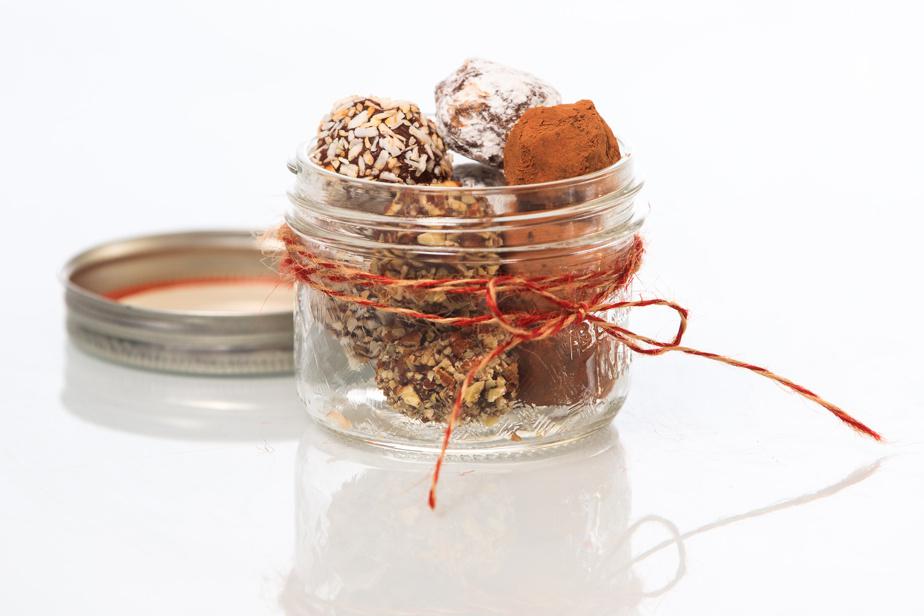Tiramisu: when pregnant, can you eat it?
During pregnancy, several foods or dishes are not recommended. What about tiramisu, an Italian delicacy that is the envy of many expectant mothers? Dietitian nutritionist Juliette Teyletche sheds light on the qualities and risks of this recipe during pregnancy.
Tiramisu is the favorite Italian dessert of many French people. Specialized in psycho-nutrition, dietician Juliette Teyletche, who regularly takes care of pregnant and breastfeeding women, explains to us why it is not without danger for the mother, and especially for her future baby.
The nutritional qualities of tiramisu
Due to its composition, tiramisu has several qualities: mascarpone, a creamy, low-salt Italian cheese, provides calcium, vitamin D and protein, eggs also provide protein and vitamin D, just like cocoa powder,
But it is above all a source of carbohydrates and lipids, which is largely the fault of mascarpone. "It's a sweet and fatty https://www.parents.fr/grossesse/alimentation-et-grossesse/les-envies/envelope-sucre-ou-sale-7575 dessert, which should only be eaten occasionally", advises Juliette Teyletche, nutritionist dietitian.
Alcohol, mascarpone and eggs, the problematic ingredients
If we look at the traditional tiramisu recipe, this dessert is made up of eggs, spoon biscuits, mascarpone, coffee, cocoa powder, brown sugar, and a touch of amaretto or rum. So there are several ingredients here that cause problems during pregnancy. "As a priority, eggs, because they are integrated raw with the other ingredients", underlines Juliette Teyletche.
Why not raw egg while pregnant? What are the risks ?
Consuming raw eggs when you are pregnant means exposing yourself to infections or illnesses that present major risks for you and especially for the future baby:

Salmonella
“Salmonella bacteria develop in foods that are not well preserved, or that have been left on the counter for a while, for example,” explains Juliette Teyletche. This bacteria is found on raw foods, dairy products and meat. The symptoms are reminiscent of gastro. The main risk for the mother is therefore dehydration. For the fetus, it is more serious: salmonella can lead to miscarriage, malformations, and various pathologies. “The only way to kill salmonella bacteria is to cook food thoroughly. », Assures the expert.
Listeria
Same thing for Listeria, which grows in humid environments and can survive cold, so in a refrigerator. In case of contamination, the mother-to-be will have flu-like symptoms, as well as nausea and vomiting. The major risk is then to have a miscarriage or to give birth prematurely. If the bacteria is transmitted to the baby, there may be consequences for the development of his brain as well.
Toxoplasmosis
Regarding toxoplasmosis, it is contracted during contact with an animal carrying the parasite, a cat in general, or by consuming contaminated food: undercooked meat, mainly pork and beef, raw vegetables... In 80% of cases , the mothers are asymptomatic. But this parasitic infection can reach the fetus and lead to death in utero, premature delivery, or neurological sequelae (abnormal brain development, psychomotor retardation, etc.). Anything that is raw or poorly washed therefore represents a risk if you are not immune. Serological tests (by blood analysis) carried out at the beginning of pregnancy make it possible to know if you have already contracted toxoplasmosis, therefore if you are immune or not. If the test is negative, it must be repeated every month during pregnancy. We must then take care to scrupulously wash the fruits and vegetables, not to consume raw foods, and to cook the meat well. Similarly, avoid any contact with the cat and its litter box.
What about alcohol and coffee tiramisu?
Second ingredient that poses a problem: alcohol, even if it is not found in large quantities in tiramisu. During pregnancy, any alcohol consumption is toxic to the fetus, as it is likely to impede its development and cause growth retardation. It is therefore better to skip a tiramisu containing rum or Amaretto, as a simple precaution.
As for coffee, it can be consumed in moderation during pregnancy. There is only one glass of coffee for a four-person tiramisu. It is therefore not this ingredient that poses the most problem.
Is the mascarpone pasteurized in the tiramisu sold in stores?
As long as it is pasteurized, mascarpone can be eaten without risk. Unless it has been opened and improperly stored afterwards. “Food hygiene must be impeccable during pregnancy. you have to pay attention to the cold chain and not to leave food at room temperature,” warns Juliette Teyletche.
Read alsoHow to make homemade tiramisu that can be eaten during pregnancy? Special recipes for pregnant women.
To satisfy your craving for tiramisu, you can find alternatives. "We make a whipped whipped cream, the consistency of which will resemble whipped egg whites", recommends Juliette Teyletche. For 250 grams of whipped cream, you need 25 cl of liquid cream, about 40 grams of icing sugar and a sachet of vanilla sugar. You can even add a little lemon juice for taste.
Tips for replacing eggs
The aqua faba is the magic trick to make a safe tiramisu for the future mother and her baby. Behind this complicated name actually hides the cooking water of legumes, quite simply.
“You can replace the egg whites with whipped chickpea cooking juice,” Juliette Teyletche tells us. Aqua faba contains water and protein, about the same amount as in egg white. Just add a little sugar to make it stick while cooking.
And to replace the egg yolk? Mix vanilla sugar with the mascarpone. Then we incorporate the homemade whipped cream (see recipe above).
“As for alcohol and coffee, you can replace them with vanilla extract or you can prepare chicory with vanilla,” explains Juliette Teyletche. In any case, do not expect the same taste, and tell yourself that it is only nine months, or even a little less, before you can taste your favorite dessert again. »
Read alsoCheesecake, macaroons... what desserts can I eat during my pregnancy?
All desserts are allowed as long as their composition does not include raw milk cheese or raw eggs. For the cheesecake, for example, we avoid the recipe without cooking. We use fresh cheese, such as Saint Morêt or Philadelphia, made from pasteurized milk, and put the whole thing in the oven at 210 degrees for 10 minutes, then at 90 degrees for 1 hour. Be sure to keep the cake cool afterwards, in a clean fridge. And to wash any red fruits deposited at the end with white vinegar, to avoid any risk of toxoplasmosis.
Pregnant women should not abuse sweets, especially if there is a risk of gestational diabetes, but they can still have fun with dessert! By avoiding pastries made with whipped cream, because the latter is also made with raw eggs.
During pregnancy, desserts made with pasteurized and baked ingredients, such as macaroons, are to be preferred.
Gestational diabetes: adapted menus
To read alsoAuthor: Gaëlle GuitardJuliette Teyletche, nutritionist and dietician in Toulouse, specialized in psycho-nutrition Article published on







